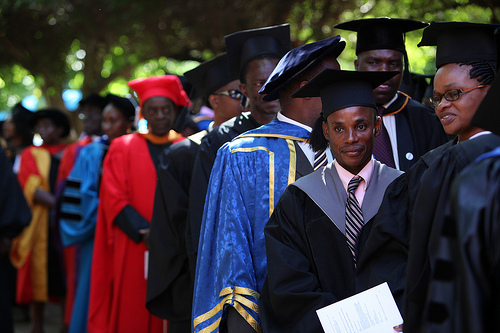
Importance of effective Higher Education in Africa
According to UNESCO and World Bank statistics, Africa still lags 20% behind the world average in university enrollment rates.
On the flip-side though, employers have voiced their concerns with graduates lacking the practical experience they required and criticized universities for not being involved enough in in ensuring their students and research meet their respective region’s demand.
African governments have invested heavily into getting more students into university over the past decades. Enrollment rates across the region doubled in the decade between 2000 – 2009, rising from 2.3 million to 5.2 million and continuing to grow.
The African Union Summit in June 2015 decided to prioritise higher education in Africa’s development plan with a declaration that suggested that member states, ‘Strengthen their support and investment in higher education in order to develop a critical mass of high level intellectual capital, and promote youth employability through entrepreneurship skills and innovation.’
“In order for the region to truly benefit from the fruits of ongoing infrastructure development and stop the constant outsourcing of jobs requiring high-skilled labor outside of the continent, African businesses and entrepreneurs need to be able to draw on a well-educated, skilled local workforce,” an article on the Djembe Communications website suggested.
Speaking at a press conference on the sidelines of the just concluded Conference on Higher Education, Policy and Research in Djibouti, Baloesa Abdi Sheikh, CEO, Northern Advocacy Organization and Cynthia Ichaminya, Member of UNESCO Youth Forum expressed their views on the importance of effective higher education in Africa.






